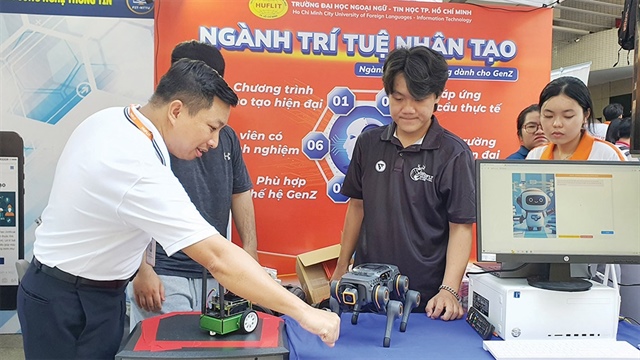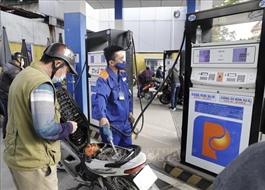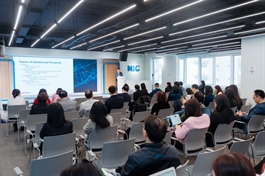Rising demand fuels new edtech promise
Rising demand fuels new edtech promise
Vietnam’s edtech sector is expected to be vibrant and poised for future growth, with startups expanding their operations.
In early January, Kyna English wrapped up over a $10 million investment in its Series B funding round, led by Asia Business Builders and DTP Education Solutions. The total amount of funding Kyna English has so far received is $16 million.

Rising demand fuels new edtech promise, Photo: Le Toan |
Kyna offers one-on-one online English programmes with the cumulative number of classes reaching 10 million to date. The company currently serves over 150,000 learners ranging from K12 students to adults, professionals and large corporate clients. The new investment underscores its ample potential and strengths to secure new funding amidst the startup winter and competition in the market.
Kyna English plans to utilise its new funding to strengthen its position in Vietnam and expand operations to Thailand, Indonesia, and Laos while exploring additional opportunities across Asia. This is coupled with the startup’s efforts to upgrade the online English learning platform by integrating AI and machine learning technologies, which offers personalised learning experiences to students.
With the fresh funding, Kyna English continues to roll out Kyna AI Tutor, offering a personalised learning environment with detailed feedback on pronunciation, vocabulary, and grammar, alongside an AI tutor at affordable prices. The startup will also leverage DTP’s network, digital content library, and teaching materials to develop new learning programmes.
Founder and CEO Ho Hong Bao Tram said that securing funding does present challenges for Vietnamese edtech startups.
“The market is competitive yet highly fragmented, with varying levels of affordability and learning needs between major cities and smaller regions. This requires startups to develop clear and targeted strategies to address these differences effectively,” Tram said. “Additionally, financial and technological capabilities remain a significant hurdle, as startups often need external support for funding, technology infrastructure, and compliance with legal and regulatory requirements, which may involve consulting firms.”
Another key challenge is maintaining investor confidence: the global edtech market is experiencing difficulties, and the rapid advancement of AI has further impacted fundraising efforts.
“To navigate these challenges, Vietnamese edtech companies must focus on continuous product innovation and the integration of AI to deliver personalised learning experiences at affordable prices. By doing so, they can attract more learners and enhance their appeal to investor,” Tram added.
Likewise, Vuihoc continues to capitalise on the online-merge-offline trend to meet the evolving demand of both parents and students. This is coupled with the adoption of AI in products such as facial recognition to evaluate students’ concentration during online lesson, virtual assistant to provide learning explanation for students and grade students’ pronunciation. Vuihoc’s key strategy in 2025 is to invest in AI to personalise students’ learning progress.
A representative of Vuihoc is upbeat about the outlook of Vietnam’s edtech market thanks to a new direction on sci-tech development, innovation, and digital transformation. However, he pointed out that the market is not only highly competitive, but also lacks regulations and standards. This results in the emergence of several low-quality products, eroding the trust of both students and parents.
“There are not many successful exit deals in Vietnam, not only in edtech, so investors are mindful when investing in the market. We hope that there will be more successful exits via mergers and acquisitions as well as initial public offerings to build the trust of investors in the Vietnamese market,” he noted.
According to VinVentures in December, in 2024, Vietnam’s deal activity continued its four-year decline, with total deal value dropping 30 per cent to $308 million. Edtech startup funding in Vietnam remained steady at eight deals totalling $15.42 million in 2024, mainly driven by global backers for early-stage transactions. With a market size of $364.71 million and a compound annual growth rate of 11.1 per cent, the market now comprises about 750 players, with K12 and language learning still being the main sector.
Tram from Kyna English noted, “The outlook for investments in edtech startups is highly promising in 2025. The rising demand for online learning, fuelled by technological advancements and the growing preference for personalised education, has led users to seek more flexible solutions, particularly in language and skill development. International investors and enterprises continue to view edtech as a high-potential sector in Vietnam, further boosting confidence in its growth.”























